How To Practice Mindful Consumption

What is it about ads that keep our eyes glued to them? How are they able to keep us scrolling on our screens endlessly; seeking more information about them? Let’s not talk about our growing wish lists.
In this blog, we shed light on how shopping has become such a source of illusionary comfort, and how to reorient our purchasing patterns to ones led by mindfulness. Although there are many of us who already acknowledge that the road to happiness isn’t through buying ‘things’, we also recognize that urges to shop for the latest, best, or new ‘thing’ are still very much real.
By gaining insights about our tendencies to turn to material goods, distancing ourselves from these urges becomes much simpler - as well as taking on the right steps towards true fulfillment.
Why are we so hooked on shopping?
There are so many ways to answer this question, simply because there are so many answers. One explanation we find interesting is from Tim Kasser, professor of psychology at Knox University.
Materialistic values are thought to be prioritised because of the insecurities and threats that are found within us, and around us. In other words, we generally incline towards materialistic behaviours when things in our lives seem unstable or we feel insecure. The idea that our new purchases can help us feel better in these areas of life can feel very reassuring, encouraging us to go further.
Does shopping help us feel better?
Well, in the moment it might. But we have doubts about it for the future.
Our impulse to buy new things is heavily fueled by the society we live in. Currently, our society is constantly telling us stories and reminding us that feeling safe from our threats and insecurities can be managed with possessions. It’s as if it were a coping mechanism - but one that although works in the moment, it doesn’t really do it for the long run.
The reason why adopting materialistic behaviours as means of finding safety can fail, is because the deeper matters that make us feel threatened or insecure aren’t resolved and overcome.
That thrill of hearing the doorbell ring and a package sitting on our doorstep is only capable of making us feel joy for a couple of hours at most...but the consequences of this lie in a further detachment from our true emotions and can lead to us feeling much emptier - which is when we tend to fall into the vicious cycle to buy even more.
Therefore, in order to release ourselves from the vicious cycle of consumption for comfort, addressing the internal subjects that are truly concerning us is precisely what we must target.
How can we practice mindful consumption?
There are three ways we thought about to engage in more mindful consumption.
1. Reduce (or remove) your exposure to forces of consumption
Studies have shown that the more you’re exposed to social models of consumption, the more you’re going to care about them.
Social models of consumption: Social media, advertisements, television, or other media that brings you to judge the standard of living.
Being exposed to such models has been repetitively studied to bring a lot more dissatisfaction about your own life, and anxieties about trying to improve it to reach a standard that...well, doesn’t exist.
Therefore, we encourage you to limit your exposure to this type of media, personalities or even people around you that influence your vision of a fulfilling life. Eventually, you won’t be constantly reminded to buy things you don’t need.
2. Practice Mindfulness
When you’re feeling unsafe, incompetent, insecure or upset, take this as an opportunity to practice mindfulness instead of shopping.
First, recognize and acknowledge how you’re feeling at an emotional level. Take the time to investigate what exactly is making you feel this way, so that you know what you need to address it. This is called the nurturing phase. It will mostly likely end up being that you don’t need any new material things to make yourself feel better. What you may need might look a lot more engaging in self care. This can come in a lot of different ways: going for a walk, working through your thoughts with a friend, taking a relaxing bath, meditating, exercising, or eating a healthy meal. But quite certainly, it won’t be a new jumper.
Tara Brack’s RAIN is an incredible tool for mindfulness practice. We truly recommend her book to learn more about this philosophy and ways of bringing attention to our inner life, for having much more compassionate engagement with the world.
3. Focus on your intrinsic values
Life on planet Earth can often impose a lot of materialistic values in our lives; ones that drive us to focus more on our personal image, money and status. As a result, this can overshadow our intrinsic values.
When we say ‘intrinsic’, we mean natural, and integral values - those that are centered around three main things:
Personal growth: Doing things you find interesting and fun
Affiliation: Maintaining close and strong relationships with others; especially people who you love.
Community Feeling: Helping the broader world to be a better place.
To avoid getting sucked into materialism, ask yourself what you care about most. If it happens to be your intrinsic values, check if the way you live your life is consistent with them. Is the work you do, people you hang around, things you buy, how you spend time aligned with them?
If not, then there’s an idea of where to start changing :)

Ultimately, one of the most effective solutions for avoiding the urge to buy things (in our opinion) is to target self care and mindfulness practices as deep to the soul and emotions as possible. At the same time, taking the time to contemplate the purpose, quality and durability of your purchases will also make you cherish, and appreciate them more - there's nothing wrong with buying things for yourself as a treat; especially if it comes from a place of mindfulness and meaning.
Not only will this help you find more fulfilment, but it is a genuine way to become more pro social and environmentally friendly :)



